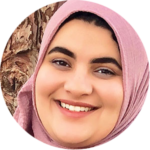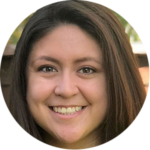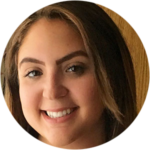You may have read last week’s post about all the things we wish we knew as undergrad seniors when starting the grad school application process. But what if you’re not a senior yet? Or just starting to think about grad school?
We’ve got you covered! My friends on NSSLHA’s Executive and Regional Councils and I have tips to prepare you for the grad application process too!
Make the Most of Your Undergrad Years
Maybe you feel like you’re not doing enough to make yourself stand out from the crowd. Maybe you feel like you don’t know enough about all the options audiology and speech-language pathology careers have to offer.
My best tip is to contact local clinicians to observe their practice. This can open so many doors! It may open your eyes to a new setting or topic area you never considered working in, it may open up your network of professionals to find a mentor—the possibilities are endless!
Here are some other tips from my friends…

Michelle D’Mello, Vice President for Government Relations and Public Policy
California State University—Fullerton | SLP Major
My BIGGEST regret was not taking part in research studies during my post-baccalaureate years. I had some fantastic research assistant experience during undergrad but got too consumed in my post-bacc classes to make time for research opportunities. Looking back, participating in research during those years would have laid the foundation to developing a thesis paper in grad school.

Aya Khalil, Vice President for Student State Officers (SLP)
California State University—Sacramento | SLP Major
Take advantage of more shadowing opportunities in different settings. The opportunities I did take advantage of helped me visualize and apply what I learned in class. It not only gave me a unique opportunity to learn through observation, but it helped me solidify that this is the career path for me and gave me a better idea of the population I’d like to work with as a professional.

Kevin Kock, Vice President for Finance
The University of Iowa | AuD Major
Get involved in at least one non-career-oriented student organization. As an undergrad, you should have fun, meet people from all walks of life, and explore all of your interests. Yes, you should take your academics seriously; but you should also focus on your mental health too!

Charlotte Miller, Vice President for Planning
SUNY—College of Plattsburgh | SLP Major
Take more classes outside of the CSD major. As part of my university’s honors program, I was able to take a few non-CSD-related courses in sexuality, identity, gender, culture, and yoga. It was really nice to give my mind a break from CSD—like a breath of fresh air! It reminded me that as much as I love speech pathology, I have other interests too.

Sarah Sleeter, Vice President for Programming (SLP)
Illinois State University | SLP Major
When I was in undergrad, I didn’t think outside the box or put too much effort into observing professionals in a variety of fields. I did the bare minimum for the observation requirements, which is fine, but I wish I would have pushed myself more. If I had shadowed more professionals in different fields, I would have made more connections with people in my community who are currently working as SLPs, had more knowledge about specific disorders, and had experience being in different settings. I think it would have allowed me to ask more questions to professionals when the stakes weren’t as high.

JJ Whicker, Vice President for Student State Officers (AuD)
Utah State University | AuD Major
Participate in undergrad research! You may find a new topic of interest that you want to focus on as a professional, or even decide you want to pursue a PhD degree.
Senior Year Will Be Here Before You Know It!

Leilani Melendrez, Western Regional Councilor
San Diego State University | SLP Major
Make connections now! Everyone in your classes is going through similar experiences. The students sitting next to you have a story and a different perspective of life. Learn from them and help each other throughout undergrad and, when the time comes, the grad application process.

Michelle D’Mello, Vice President for Government Relations and Public Policy
California State University—Fullerton | SLP Major
Build rapport with your professors early on. We all know visiting professors during their office hours is important, but it’s not always easy—it can seem scary! Looking back, if I’d gotten over my fears and developed stronger, personal relationships with them as a freshman and sophomore, they would have known more about me and could have included that in my letters of recommendation.

Chelsea Woodard, Vice President for Academic Affairs
James Madison University | SLP Major
Take the GRE early! Make sure you not only have enough time to get your official scores in, but that you have enough time to take it again, in case you’d like to increase your score on a particular subject.

Mariah Benz, Central Regional Councilor
Minnesota State University—Moorhead | SLP Major
Start applying early. Begin by solidifying your resume and build your personal statement from there. Remember some schools will have hundreds of applications to address. What will make yours stand out from the rest?

Jennifer Blake, Northeastern Regional Councilor
Long Island University—Brooklyn | SLP Major
Ask your grad school friends for advice. They just lived through the process and can give you timely advice. There are absolutely no stupid questions during this process!

Kevin Kock, Vice President for Finance
The University of Iowa | AuD Major
Some schools require application fees, so the earlier you start saving money for those applications, the more programs you can apply to and increase your odds!


It’s paid to new gamblers in substitution for a commitment of a particular lowest amount from their store.
How would certainly you utilize $58119 to make even more money: http://v.ht/wln7tJP?1cGCWRQrnVX